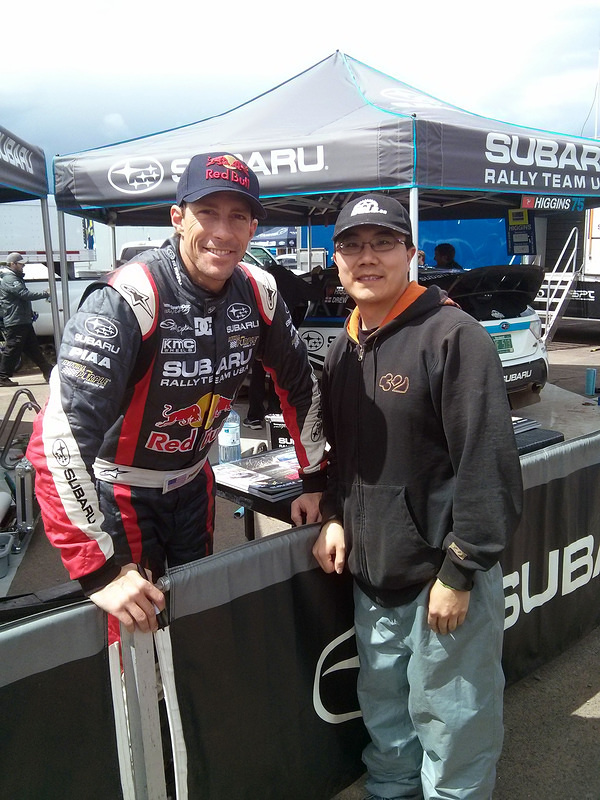Mechanical Sympathy
The past couple of days I keep hearing the idiomatic phrase, “mechanical sympathy”. It made me smile to hear other people; ok, a quick disclaimer they are race car drivers, but none the less it was just refreshing to hear that others get it as well. Truth be told it reminded me of having the same conversation with my wife, but that’s another topic for another time.
Mechanical sympathy sounds like something that shouldn’t exist in the motor-sport world. A world that promotes the cultural perception that winning is accepted over all at any cost. This may turn into a rant and I apologize.
That type of glamour is only partially true. I understand it lacks that je ne sais pas, that excitement that is brought to the table, but you don’t finish with a damaged race car and you certainly don’t achieve the podium by yourself (even in grassroots racing). A broken race car only brings misery and to the pocket book.
When we start to discuss about performance, mechanical sympathy becomes an important subject.
“You don’t have to be an engineer to be a racing driver, but you do have to have Mechanical Sympathy.” – Jackie Stewart?
This quote is credited to Sir. Jackie Steward, but like all quotes on the internet it is difficult to credit the source (most likely this is true). The statement illustrates that having a deeper knowledge of how things are put together makes you a better driver. To have sympathy one must also need to understand the hardships encountered.
The challenge is always finding that balance to adapt. Too often I have seen that people only look at the high level and disregard the actual environment of the situation. When things fail they then blame wholeheartedly at the mechanics. The decisions we make should always be backed up with data.
A lot of times this becomes a catch 22 scenario. How do you understand the problem when you don’t understand the mechanics and then how do you recognize the problem without the mechanics failing. I understand, it is very cyclical. The answer is failures will come and when they do, hopefully you learn from them.
So, what does this have to do with performance and for that matter winning? As a driver you need to be aware of the mechanics of the vehicle. There are many limitations imposed and what you think you can do and what the vehicle can do are two very different subjects. A typical approach is one of economics. When a failure occurs the quick solution is to replace it with a better part without acknowledging the root cause of the failure.
I was at a national rally event at Portland and helped pit crew for a friend’s team. I was severely disappointed and it was no surprise that they didn’t win and had to retire. The lack of sympathy being replaced with brute force was amazing. I was told that they had always had a problem with lug nuts coming loose so they opted to torqued the lug nuts to one hundred foot pounds (100ft/lbs) or more. Yes, they also had a problem with the studs that hold the lug nuts shearing off. What was happening was that they didn’t want to replace the washer that seats the lug nut to the wheel. You can call this a lack of maintenance, but it’s a case of lacking mechanical sympathy. What was happen was that the washers were getting crushed and no longer able to bear load.
The kicker – the driver is an engineer. I was told I didn’t understand rally. In the end I guess I never will. It does however, illustrate that one does not need to be an engineer to developed mechanical sympathy.
 The next issue was with another team and it involved with braking, more specifically the rotors were showing multiple stress cracks inside and outside. I get asked for my opinion as I think word got out that I have been involved in big race events.
The next issue was with another team and it involved with braking, more specifically the rotors were showing multiple stress cracks inside and outside. I get asked for my opinion as I think word got out that I have been involved in big race events.
The conversations goes like this:
Me: Do you have a replacement?
Driver: No.
Me: Drive slower.
Driver: I can’t. I only know how to drive fast.
Me: Rotors are cracked inside and outside. Why is there no ducting?
Driver: These are expensive rotors. (being cocky, trying to point out I guess they spent money)
Me: So, they’re alcon? I have that on the TSX race car. They still need cooling.
Driver: You don’t understand rocks jam the duct or will damage the rotor and caliper
Me: Put a screen then (confused reply)
Needless to say that team retired on the next stage. It’s these moments that I wonder why the lack of sympathy? There is a lot of money being utilized on not winning or at the very least to the podium. Later in the evening I can tell my wife was just smirking and laughing at my predicament when I told her the days events. It was no surprise to her at all.
Anyway, I have gone on about this topic for too long. In my working world I call this situational awareness.
Situational Awareness is the ability to identify, process, and comprehend the critical elements of information about what is happening to the team with regards to the mission. More simply, it’s knowing what is going on around you.
I see this a lot more with the software and hardware developers pitting against each other as they are unwilling to understand the challenges around them. It ends up being tunnel vision.

Final end to the story was that I got to meet and chat with Travis Pastrana, Andrew Comrie-Picard, and Tim O’Neil. Travis was friendly and was willing to chat a little. I would have liked to also have talked with the Subaru engineer’s and their EFI guy, but they already had packed and started to travel home for the next race. I had a short sit down chat with ACP (Andrew Comrie-Picard) and it was cool. He was campaigning the Focus ST and I was shocked to hear that they didn’t run stand alone or have factory backing for the ECU and so they were doing a lot of old school tricks to keep the ECU happy’ish. It was a fun conversation.
I also bumped into a good friend Eric who was crew chief for the event for team O’Neil and that was really interesting to have a backstage pass and watch how the crew work’s together. They don’t have the funding like Subaru so they have to be more resourceful even though they have backing from Ford.



